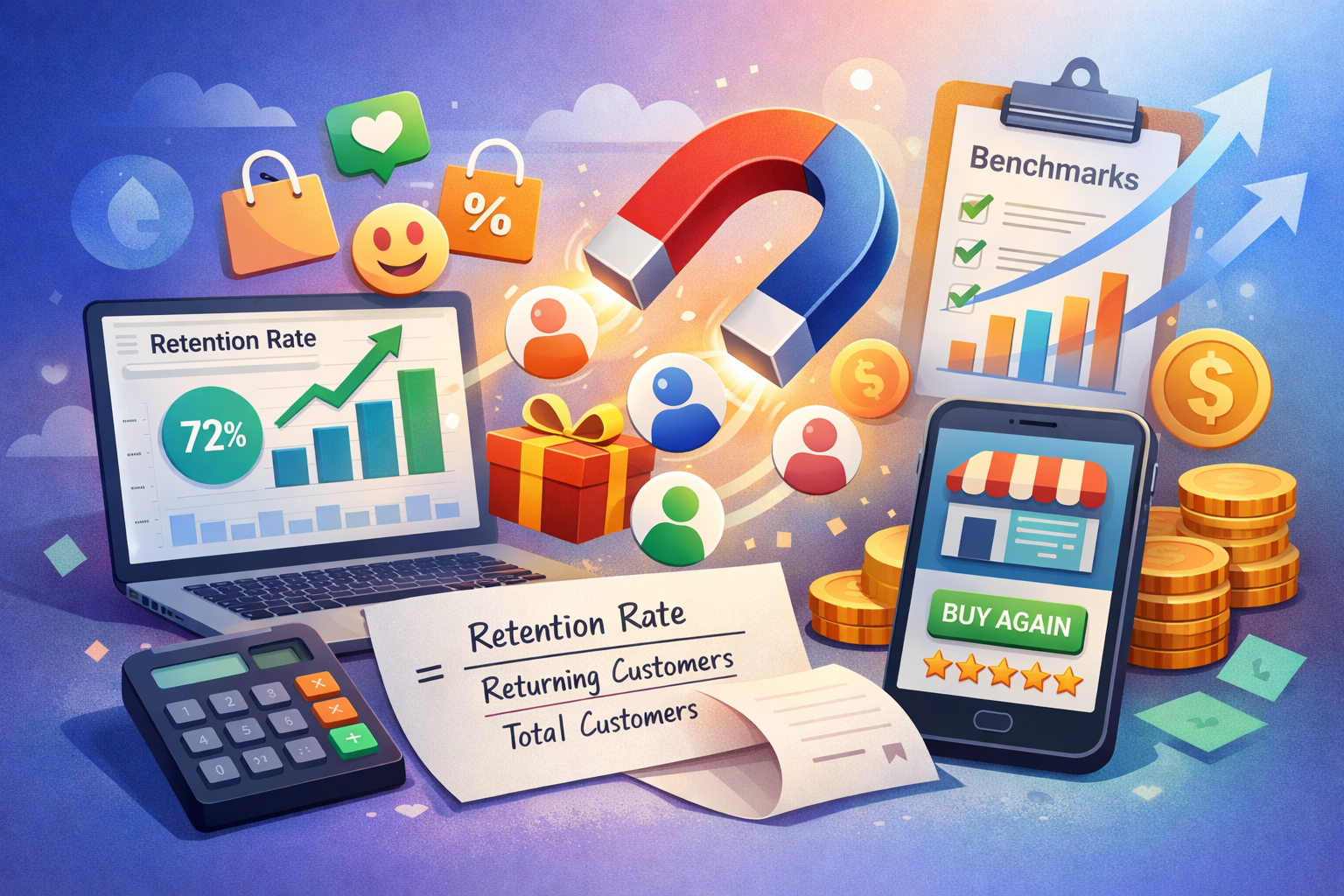Try Zipchat in Action!
Enter your store URL to see how Zipchat would behave.

In today's digital landscape, the traditional retail model has been disrupted by the rise of direct-to-consumer (D2C) brands. These brands bypass traditional distribution channels and connect directly with customers through their own online platforms. So, what exactly is D2C and why should brands consider adopting this approach?
Understanding D2C
Definition of D2C
D2C, or direct-to-consumer, refers to the business model where brands sell their products or services directly to customers, eliminating the need for intermediaries like retailers or wholesalers. This allows brands to have greater control over their products, pricing, and customer relationships.
One of the key advantages of the D2C model is the ability for brands to establish a direct line of communication with their customers. By cutting out the middlemen, brands can interact with consumers in a more personalized manner, understanding their preferences and needs more effectively.
D2C vs. B2C: Key Differences
It's important to distinguish D2C from the traditional business-to-consumer (B2C) model. In the B2C model, brands sell their products through retailers or other middlemen, whereas in the D2C model, brands serve as their own retailers. This direct connection with customers enables D2C brands to gather valuable data and feedback, leading to better product development and personalized customer experiences.
Moreover, the D2C model often allows brands to have more control over their brand image and messaging. By interacting directly with consumers, brands can ensure that their values and mission are effectively communicated, fostering stronger brand loyalty and trust among customers.
Benefits of Adopting the D2C Model

Higher Margins and Lower Prices
One of the main advantages of the D2C model is the potential for higher profit margins. By cutting out middlemen, brands can eliminate the markups associated with traditional retail. This allows D2C brands to offer high-quality products at more affordable prices to their customers. For instance, a study by Digital Commerce 360 found that D2C brands can achieve gross margins of up to 65%, compared to 35-40% for traditional retail brands.
Moreover, by selling directly to consumers, D2C brands can also exercise greater control over pricing strategies and promotional activities. This flexibility enables them to respond swiftly to market trends and adjust prices in real-time, optimizing revenue generation while staying competitive in a dynamic marketplace.
Direct Customer Relationships and Feedback
In the D2C model, brands have direct access to their customers, opening up opportunities for meaningful interactions and feedback. This direct feedback loop enables brands to gather valuable insights about customer preferences, pain points, and satisfaction levels. By leveraging this information, brands can continuously improve their products and tailor their marketing strategies to meet customer needs.
Furthermore, establishing direct relationships with customers fosters a sense of community and loyalty around the brand. D2C companies can engage with their audience through personalized communication, exclusive offers, and loyalty programs, creating a strong emotional bond that goes beyond a simple transactional relationship.
Enhanced Control Over Customer Experience
D2C brands have full control over the end-to-end customer experience. From the moment a customer lands on their website to the post-purchase stage, every touchpoint can be carefully curated to reflect the brand's values and personality. This level of control allows D2C brands to create seamless and personalized experiences that foster loyalty and build brand affinity.
Moreover, with the rise of social media and influencer marketing, D2C brands can leverage these channels to amplify their brand message and engage with customers in innovative ways. By staying closely connected to their audience and adapting to evolving consumer preferences, D2C brands can stay ahead of the curve and maintain a competitive edge in the market.
Why D2C is Gaining Popularity
Ecommerce Boom During COVID-19
The COVID-19 pandemic has propelled the growth of e-commerce, with consumers turning to online shopping as a safer and more convenient option. According to an eMarketer report, e-commerce sales surged by 32.4% in 2020, and this trend is expected to continue. D2C brands are well-positioned to capitalize on this shift, as they already have established online platforms and can easily adapt to changing market demands.
One of the key factors contributing to the rise of D2C brands during the pandemic is the shift in consumer behavior towards digital channels. With lockdowns and social distancing measures in place, traditional brick-and-mortar stores faced challenges in serving customers. In contrast, D2C brands, with their online presence and direct connection to consumers, were able to meet the increased demand for online shopping seamlessly. This shift not only accelerated the growth of D2C brands but also highlighted the importance of a strong digital strategy in today's market landscape.
Case Studies of Successful D2C Brands
Several D2C brands have achieved remarkable success in recent years, providing valuable insights into why this model works. Glossier, a skincare and makeup brand, disrupted the beauty industry by prioritizing customer engagement and leveraging user-generated content. Dollar Shave Club revolutionized the shaving industry by offering a subscription-based model and affordable, high-quality razors. Casper disrupted the mattress industry with its direct-to-consumer sales strategy. Warby Parker disrupted the eyewear industry by offering affordable, stylish glasses through their online platform. BarkBox, a subscription-based service, disrupted the pet industry by delivering curated boxes of toys and treats to pet owners. These success stories demonstrate the potential of the D2C model to disrupt traditional industries and capture market share.
Another key aspect that sets successful D2C brands apart is their focus on creating a seamless customer experience. By cutting out middlemen and selling directly to consumers, these brands have been able to build strong relationships with their customer base. Through personalized marketing strategies, innovative product offerings, and exceptional customer service, D2C brands have managed to create a loyal following and differentiate themselves in crowded markets. This customer-centric approach not only drives sales but also fosters brand loyalty and advocacy, essential components for long-term success in the competitive e-commerce landscape.
Challenges of the D2C Model

Managing Customer Service In-House
With the D2C model, brands take on the responsibility of managing customer service in-house. This includes handling customer queries, complaints, and returns. It can be challenging for brands to build and maintain a highly responsive customer service team, especially as they scale. However, brands can overcome this challenge by leveraging technology solutions, such as chatbots and automated customer service platforms, to streamline and enhance the customer service experience.
Furthermore, managing customer service in-house allows brands to have direct control over the customer interactions, enabling them to gather valuable insights and feedback that can be used to improve products and services. By closely monitoring customer inquiries and issues, brands can proactively address common pain points and enhance the overall customer experience.
Competing with Ecommerce Giants
While the D2C model offers numerous advantages, it's important to acknowledge the fierce competition from established e-commerce giants. These giants have vast resources, strong brand recognition, and loyal customer bases. However, D2C brands can differentiate themselves by offering unique products, personalized experiences, and a strong brand story. By building a niche, targeting a specific audience, and leveraging digital marketing strategies, D2C brands can carve out a distinct space in the market.
In addition, D2C brands can capitalize on the growing consumer preference for authentic and transparent brands. By emphasizing their direct relationship with customers, D2C brands can build trust and loyalty, distinguishing themselves from the more impersonal transactions often associated with larger e-commerce platforms. This focus on authenticity can resonate with consumers seeking genuine connections with the brands they support, ultimately driving customer acquisition and retention for D2C businesses.
Top Direct-to-Consumer (D2C) Brands to Watch
Glossier
Glossier, founded by Emily Weiss, has taken the beauty industry by storm with its innovative approach to skincare and makeup. The brand's success can be attributed to its emphasis on creating products that enhance natural beauty and empower individuals to embrace their unique features. Through strategic collaborations with influencers and celebrities, Glossier has solidified its position as a trendsetter in the beauty world.
Moreover, Glossier's commitment to sustainability and eco-friendly packaging sets it apart from traditional beauty brands. By prioritizing ethical practices and transparency in its supply chain, Glossier has resonated with environmentally conscious consumers who seek products that align with their values.
Dollar Shave Club
Dollar Shave Club, founded by Michael Dubin, has redefined the grooming industry by offering high-quality razors at affordable prices. The brand's witty marketing campaigns and focus on customer experience have cultivated a strong sense of community among its subscribers. Through personalized recommendations and a seamless online shopping experience, Dollar Shave Club has established itself as a leader in the men's grooming market.
Furthermore, Dollar Shave Club's expansion into other grooming products, such as skincare and hair care, demonstrates its commitment to meeting the evolving needs of its customers. By diversifying its product offerings and staying attuned to industry trends, Dollar Shave Club continues to set the standard for accessible and effective grooming solutions.
Casper
Casper, known for its innovative approach to sleep technology, has revolutionized the way people shop for mattresses. By combining ergonomic design principles with advanced materials, Casper has created a range of mattresses that cater to different sleep preferences and body types. The brand's dedication to research and development ensures that customers receive a restful and rejuvenating night's sleep.
In addition to its core product line, Casper has expanded into bedding accessories and sleep technology devices to offer a comprehensive sleep solution. Through partnerships with health experts and sleep specialists, Casper continues to educate consumers on the importance of quality sleep and its impact on overall well-being.
Warby Parker
Warby Parker, founded by Neil Blumenthal and Dave Gilboa, has disrupted the eyewear industry by making prescription glasses and sunglasses more accessible and affordable. The brand's commitment to social responsibility is evident through its "Buy a Pair, Give a Pair" program, which donates eyewear to individuals in need for every pair sold. This philanthropic initiative has resonated with customers who value companies that prioritize giving back to the community.
Furthermore, Warby Parker's innovative approach to retail, such as its brick-and-mortar stores and virtual try-on technology, has redefined the eyewear shopping experience. By blending online convenience with personalized customer service, Warby Parker has created a seamless and enjoyable way for customers to find their perfect pair of glasses.
BarkBox
BarkBox, a subscription service for dogs and their owners, has transformed the pet industry by curating monthly boxes of toys, treats, and accessories. The brand's dedication to pet wellness and happiness is evident in the high-quality products included in each box, which are tailored to suit different dog breeds and sizes. By prioritizing the health and enjoyment of furry companions, BarkBox has established itself as a trusted source for pet parents seeking to pamper their four-legged friends.
Moreover, BarkBox's engagement with its community of subscribers through social media and interactive events fosters a sense of belonging and camaraderie among dog owners. By creating a platform for pet lovers to share their experiences and connect with like-minded individuals, BarkBox has cultivated a loyal and passionate customer base that extends beyond the products it offers.
Is D2C Right for Your Brand?
Evaluating Your Readiness for D2C
While the D2C model presents exciting opportunities, it's essential for brands to evaluate their readiness before diving in. Some key factors to consider include the nature of the product or service, existing distribution channels, brand awareness, and customer preferences. Conducting market research and analyzing customer data can provide valuable insights into whether the D2C model aligns with your brand's objectives and target audience.
Planning Your D2C Strategy
If you determine that the D2C model is suitable for your brand, it's crucial to develop a comprehensive strategy. This involves planning every aspect, from product development and pricing to customer acquisition and retention. Building a strong online presence, leveraging social media, and investing in UX design are just a few key elements to consider when crafting your D2C strategy.
Conclusion
The rise of the D2C model is reshaping the retail landscape, providing brands with unique opportunities to connect directly with customers, gather valuable insights, and create personalized experiences. While there are challenges to navigate, the benefits of adopting the D2C model, such as higher margins, direct customer relationships, and enhanced control over the customer experience, make it a compelling option for brands looking to thrive in the digital age. By understanding the principles of D2C and carefully evaluating their readiness, brands can position themselves for success in this evolving business landscape.
Take Your Ecommerce Experience to the Next Level with Zipchat AI
Embrace the future of D2C with Zipchat AI, the most powerful AI Chatbot designed for Ecommerce. Engage with your customers like never before, boost your conversion rates, and streamline your support with our proactive engagement tools. Merchants using Zipchat AI see an impressive 13.4% Chat-to-Sale conversion rate on average. Don't miss out on the opportunity to transform your online store. Start your 7-Day Free Trial today and witness the difference for yourself!








